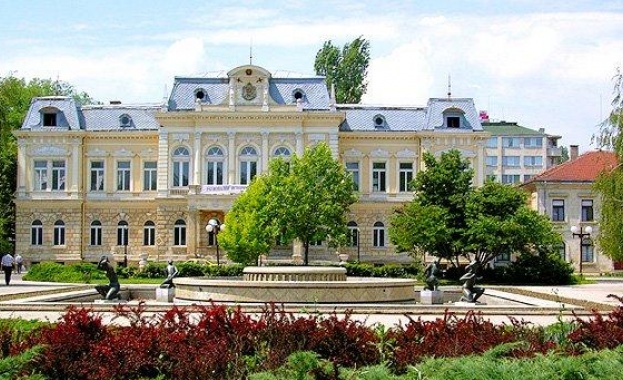The museum was opened on January 1st 1904 as a museum collection at the “Knyaz Boris I” Boys' High School. The collection grew into a Town Museum in 1937, and became a state museum in 1949. In 1952 it was declared a county museum, and since July 2000 – a regional one. The museum's exhibit contains 130 000 pieces of cultural artifacts. The museum pursues its activities in the preservation and exhibition of movable cultural artifacts, tangible and intangible cultural heritage, and research on the history and nature of Northeast Bulgaria.
The Contemporary History Section is part of the Modern and Contemporary History Department, established in 1965. The long years of accumulation by the museum’s curators covers the political, economic, cultural and everyday life of Rousse during the period of socialism and post-socialism. The newest tendency in the collecting work of the section is the recording of oral narratives from the period of socialism and democracy, using the "oral history" method for their storing and examination. The overall fund collection of the section contains an inventory of approximately 10 000 pieces, and also includes the following collections:
- badges, awards and medals
- signs of the socialist landscape
- technology from the socialist period – radios, televisions, typewriters, projectors, etc.
- belongings of notable people from Rousse, like Konstantin Dimchev (actor), Stefan Vachev (director of the Youth Symphonic Orchestra), etc.
- materials related to the history of the Bulgarian River Shipping Company – uniforms, documents, photos
- documents and pictures, representing the history of the Youth Brigade Movement
- images, related to the development of industry and agriculture in Rousse and the region
- printed materials and images from the First International Music Festival “March Music Days” in Rousse
- images related to the ecological protests in Rousse, which resulted in the demands for democratic changes in Bulgaria
- election materials from the period of democratic rule
- documents, belongings and video recordings, related to the history of those persecuted by the Communist regime and of the Goryansko Movement.
The research activity of the specialists covers issues of political, cultural and public life in Rousse and the region, as well as an ethnological research on the problems of the everyday culture in the industrial town. Two main collections directly connected with the cultural opposition to the socialist regime are held at the Museum: the collection "Ecological Protests against Chlorine Pollution" and the collection "Angry Young Poets", devoted to the resistance and opposition of poets in Rousse during the 1960s.
The section has no permanent exhibition, but presents different temporary exhibitions, part of which are devoted primarily to the socialist period: “The Political Poster”, "The Bureau of the Dictator", etc.
The Rousse Regional Museum of History develops broad research and educational programs, and expands the range of its audience through meetings, lectures, debates and book presentations. The museum is a place for dialogue between generations of experts and the general public.

